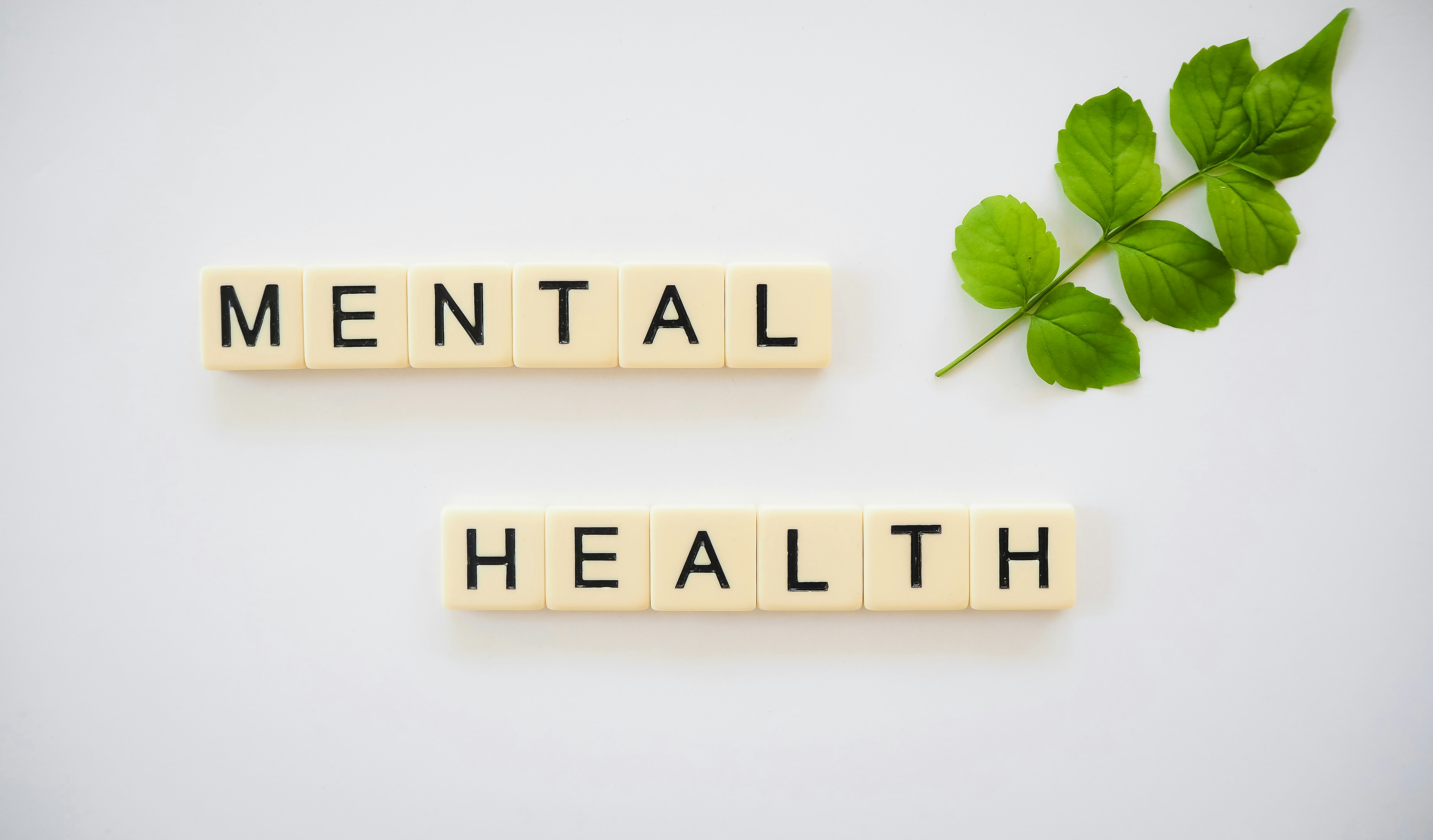Mental health is a general condition of mental well-being consisting of many aspects. In recent years, public awareness of mental health and how it significantly affects life has increased. A person's physical, mental, and social well-being- affects overall functioning.
Many factors, primarily environmental factors, influence mental health. When mental health is affected, various types of disorders may occur. In such cases, it is necessary to seek advice from a psychological specialist. A frequently used method in mental health issues is psychotherapy.

Mental health is described as a continuum, a spectrum at the ends of which are mental disorders![]() and mental well-being
and mental well-being![]() . Mental well-being is a broad concept that consists of many aspects. Everybody wants to have a good life and strives for it. Developing it means being able to practice stress management techniques and more. Mental well-being is, therefore, defined by an assessment of one's life and satisfaction with it.
. Mental well-being is a broad concept that consists of many aspects. Everybody wants to have a good life and strives for it. Developing it means being able to practice stress management techniques and more. Mental well-being is, therefore, defined by an assessment of one's life and satisfaction with it.
Psychological well-being is used for the benefit of the individual. Aspects of well-being include affective![]() , which refers to the current emotional state and mood, and evaluative
, which refers to the current emotional state and mood, and evaluative![]() , which refers to long-term developmental goals. Resilience
, which refers to long-term developmental goals. Resilience![]() and prevention of mental disorders is also an important aspect. The following factors influence the assessment of well-being and overall mental health:
and prevention of mental disorders is also an important aspect. The following factors influence the assessment of well-being and overall mental health:

Personal development is an essential aspect of mental health. Pursuing continuous self-fulfillment in developmental and professional contexts influences life satisfaction. Self-development is a term for seeking happiness and actively working towards it. Development is about self-awareness and the pursuit of ambitious goals and dreams. People who care about personal self-development are not afraid of challenges and new experiences.
Good relations and relationships are other essential aspects that contribute to life satisfaction and, thus, to improved mental health. Social relationships include various contacts involving family, friends, and romantic relationships. Happy social relationships are also influenced by the atmosphere at work and relationships with co-workers. The opposite of good social relationships is, among other things, the problem of loneliness or social exclusion.
Another vital aspect is self-esteem, which refers to your overall assessment of yourself. Your self-esteem is, among other things, your assessment of your appearance, behavior, and reactions. You give yourself value as a person. Self-esteem changes throughout life depending on situations and experiences. Your sense of worth can be lowered or raised by various factors. A high sense of value positively affects overall mental health and means, among other things, knowing your strengths and respecting yourself. A positive and adequate self-image is an attitude of mental well-being.

Mental health relates to emotions and how patients cope with emotional states. Everybody experiences various emotions of varying intensity in their lives. The ability to manage emotional experiences is referred to as emotion regulation. People who can regulate emotions use their feelings to their advantage. Emotions are ultimately good for providing information. In contrast, dysregulation in this area is the inability to inhibit emotional responses and arouse emotion-related activity.
Mental health is also influenced by the ability to avoid and cope with stress and negative situations. Resilient people cope better with difficult, stressful situations. Everybody has various problems and crises in their lives. How you deal with them has an impact on your mental health. Trauma, abuse, poverty, and different adversities significantly disrupt well-being. They deal with problems at a high level, helps to reduce stress and increase life satisfaction.
Mental disorders are a serious global problem that causes catastrophic consequences. Mental health problems cause many health and economic consequences for various sectors. The consequences of mental health neglect come at a high cost. The global cost of mental disorders in 2010 was US$2-5 trillion, and projections of future mental health costs are likely to increase in the future. The negative impact of mental disorders can occur at all stages of life.

Pregnant women need to take special care of their health, including their mental health. Pregnant women who have various substance addictions increase the risk of mental disorders in their children. Also, perinatal depression![]() can be associated with a risk of later mental disorders in children.
can be associated with a risk of later mental disorders in children.
Children are particularly vulnerable to mental disorders. Developmentally unfavorable conditions can significantly damage a child's mental well-being. Disorders occurring during childhood have an impact on later years and adult life.
Adults can also experience the unpleasant effects of mental disorders. Very often in adults, mental disorders cause addictions. Mental health problems are also associated with an increased likelihood of physical diseases![]() .
.
Mental disorders are highly related to multiple factors, but their impact can vary from person to person. Awareness of risk factors is critical during childhood when personality and different aspects of the human psyche are formed. Risk factors affecting mental health include:

Genetics can be highly related to some mental disorders. Some mental disorders mainly have a genetic basis, for example, schizophrenia or autism. The presence of the disorders can significantly impede patients' functioning and mental well-being. Some diseases are characterized by an increased likelihood of occurrence in subsequent generations, which increases the level of risk. However, a person's ultimate health status is influenced by various genes and, to a large extent, by environmental factors.
Biological factors refer, in general terms, to the influence of the body's response to mental states. Various processes in the human body can affect brain function and overall mental health. Such factors mainly include the regulation of the HPA axis, thyroid function, oxytocin, prolactin, or progesterone levels. Hormonal changes are highly related to emotional states. Therefore, pregnant women are more likely to have their mental well-being compromised by biological factors.
Another type of factor that affects mental health is environmental factors. The environment is the setting in which we live and all its aspects. Therefore, it is a broad term encompassing financial status, climate, social relationships, etc. Children can also be affected by the type of upbringing and relationships with teachers and peers. Even the aesthetics of where you live can significantly impact mental health. Environmental factors are highly influential, as mental disorders are often linked to adversity that patients have experienced in childhood or later. Examples of adults at high risk include people from minority groups.

Mental disorders are a significant public problem that communities are fighting against. There is a lot of interest in mental health nowadays, so local authorities often intervene for preventative goals. Some various strategies and interventions are suitable for positive mental health. Research has the following aspects significantly influence mental well-being aspects:
Many studies conducted suggest that mental health is strongly influenced by physical activity. Unfortunately, many people still underestimate this critical part of life. Exercise, on the other hand, reduces the possibility of physical and mental illness. Regular physical activity, therefore, has many benefits, and the choice of activities is vast, and sports can be tailored to individual needs. It is worth mentioning that physical activity can have an antidepressant effect![]() , as studies have noted a reduction in symptoms of depression.
, as studies have noted a reduction in symptoms of depression.
However, excessive exercise is also not advisable as it can be associated with addictions or body dysmorphia. Therefore, taking care of regular and adapted physical activity is recommended to improve the overall quality of life.

Another vital factor for mental health is the quantity and quality of sleep. Sleep is not only a respite from the outside world. It is also a time set aside for the regeneration of the body. The mind also needs regeneration. The brain functions much better after a sufficiently long-term sleep. Sleep improves memory and enhances creativity.
In addition, an adequate amount of quality sleep is also linked to mood and weight regulation. Therefore, sleep disorders can also be linked to other mental illnesses. Insomnia![]() is a significant predictor of depressive states. Thus, take care to sleep well, and it will guarantee you a better day and a better life.
is a significant predictor of depressive states. Thus, take care to sleep well, and it will guarantee you a better day and a better life.
Satisfying your basics is essential for your mental health. Therefore, what you eat is also important. The way you eat and the type of food you eat can have an impact on aspects of mental disorders. According to experts, the Western dietary pattern is not beneficial for mental health. People on such a diet have a higher risk of depression and anxiety.
In contrast, the Mediterranean diet![]() is a recommended option because it has a protective effect on mental health. Polyunsaturated fatty acids, in particular, have a therapeutic effect. Also, excessive amounts of alcohol or caffeine in the diet negatively affect mood and different aspects of mental health. Therefore, if you are concerned about feeling better, take care of what's on your plate.
is a recommended option because it has a protective effect on mental health. Polyunsaturated fatty acids, in particular, have a therapeutic effect. Also, excessive amounts of alcohol or caffeine in the diet negatively affect mood and different aspects of mental health. Therefore, if you are concerned about feeling better, take care of what's on your plate.

Social relationships are essential to life, so they significantly affect overall satisfaction. Some people may need more support from society. They need care and acceptance because, without these factors, they run a high risk of mental health deterioration. Good social ties reduce stigma and help with adaptation. The social environment can be very beneficial and a form of protection for a person's well-being.
Social support is critical in schizophrenia![]() . Therefore, if you do not have close relationships, using support groups and other organizations that focus on social support is worthwhile.
. Therefore, if you do not have close relationships, using support groups and other organizations that focus on social support is worthwhile.
Self-awareness is a broad term that, among other things, can describe inner beliefs and goals. Awareness of one's emotional states, personality traits, and abilities significantly influences self-esteem![]() . Self-esteem, on the other hand, is highly related to mental health. A positive attitude towards oneself helps to cope with difficult situations.
. Self-esteem, on the other hand, is highly related to mental health. A positive attitude towards oneself helps to cope with difficult situations.
High self-esteem is generally associated with many benefits, such as better well-being and relationships. Low self-esteem, on the other hand, predisposes to anxiety and addictions. Another essential aspect of self-awareness is the goal in life![]() . Making sense of life and setting goals helps to reduce uncertainty. Having goals minimizes the risk of disorders, so it is good to put a direction in which we want to go.
. Making sense of life and setting goals helps to reduce uncertainty. Having goals minimizes the risk of disorders, so it is good to put a direction in which we want to go.

Being able to cope with stressful situations and adverse circumstances is an essential mental health trait. Everybody is exposed to traumas and unpredictable conditions that can damage mental well-being and stability. Coping styles help in crises. Personal competencies can be acquired; stress resilience can be learned with unique techniques and support.
Sensitive and anxious people find a solution in psychotherapy, which helps them learn coping techniques. Accepting the negative aspects of life is, therefore, essential and helps to protect against PTSD![]() and maintain a balanced perspective on life, among other things.
and maintain a balanced perspective on life, among other things.
Psychology experts have noted that mindfulness can improve quality of life. Deliberately focusing on the present moment and noticing the positive aspects of life has extraordinary power. People tend to become accustomed to their surroundings and fixed things. It makes it possible for them to miss the good aspects of their lives.
Being mindful and focusing on experiences helps one to accept life, and it has many beneficial effects. Mindfulness removes stress and influences a sense of gratitude. Mindfulness techniques have been shown to prevent mental disorders![]() . Therefore, it is worth practicing mindfulness, as it will also give you many more skills and benefits.
. Therefore, it is worth practicing mindfulness, as it will also give you many more skills and benefits.
Mental health is a particularly significant aspect of health. Mental health is described as a continuum, a spectrum at the ends of which are mental disorders and mental well-being. Mental well-being includes many aspects that can be at risk. Raising awareness about mental health is essential. Research supports various strategies to improve quality and satisfaction with life.